Happy ending for smuggled Pig-nosed Turtles: Repatriated and released in Indonesia
Happy ending for smuggled Pig-nosed Turtles: Repatriated and released in Indonesia
Wildlife crime sentence fails to reflect black market value and cost of repatriation
(HONG KONG, 13th September, 2018) 595 smuggled Pig-nosed Turtles started the long journey back to West Papua, Indonesia on Friday 24th August. After spending three days in transport, the juvenile turtles were finally released into the Digoel River at Tanah Merah, West Papua. The repatriation and release involved collaboration between Kadoorie Farm & Botanic Garden (KFBG), the Agriculture, Fisheries & Conservation Department (AFCD), the Ministry of Forestry of the Republic of Indonesia, International Animal Rescue (IAR) Indonesia and WWF (Indonesia) with funding contribution from the Wildlife Conservation Society.
Long Journey Home
To reach the release site, the turtles experienced a five-hour flight from Hong Kong to Jakarta, a seven-hour flight from Jakarta to Merauke in Papua and finally a seven-hour drive to the release site, accompanied by Tan Kit Sun, senior conservation officer, and Dr. Alessandro Grioni (Dr. Alex Grioni), veterinarian of KFBG Fauna Conservation Department.
The release of the turtles in the Digoel River was overseen by Government officials from the Boven Digoel Regency, the Sokanggo Village Leader, the local Pastor and members of the community.
A representative from the district government who attended the release said: “The government and the people here are very appreciative and enthusiastic about the release of the turtles. The pig-nosed turtles are an asset to our district so, together with the local community, we are ready to help maintain and conserve them so they are no longer smuggled out of the village.”
Significant Costs of Care and Repatriation
In January this year, 658 Pig-nosed Turtles were smuggled from Indonesia to the Hong Kong SAR, and were intercepted by alert Customs Officers. The turtles were sent to the KFBG Wild Animal Rescue Centre for temporary care for eight months while the authorities investigated the wildlife trafficking crime.
The black market value of the 658 Pig-nosed turtles was estimated to be HK$526,400. The cost for KFBG to care for and repatriate the animals amounted to over HK$100,000. However, the offender was fined a mere HK$20,000 by the courts with no custodial sentence. Clearly the fine is not a disincentive to wildlife traffickers.
Dr. Gary Ades, head of Fauna Conservation Department, KFBG said: “The local courts should be aware of these costs which are borne by NGOs and Governments as the result of the illegal actions of a wildlife criminal. The estimated post-seizure costs for live animals should be one of the case considerations during sentencing of criminals by the courts.”
Plight of Pig-nosed Turtles
The pig-nosed turtle is classified as Vulnerable (VN) on the International Union for Conservation of Nature (IUCN) Red List of Endangered Species. Pig-nosed Turtles were listed in Appendix II of the Convention on International Trade in Endangered Species of Wild Fauna and Flora (CITES) in 2005, recognizing at the time that any legal trade required careful monitoring to prevent population declines.
According to the Endangered Species (Cap 586), import, export and possession of Pig-nosed Turtles in Hong Kong would require permission from AFCD.
Any person contravening the requirements of Cap. 586 can be prosecuted and is liable on conviction to a maximum fine of HK$ 10,000,000 and to imprisonment for 10 years. The seized specimens can without further order, be forfeited to the government.
Media Enquiry:
Please contact Cindy Luk, Communication Officer of KFBG on 2483 72270 or email at media@kfbg.org
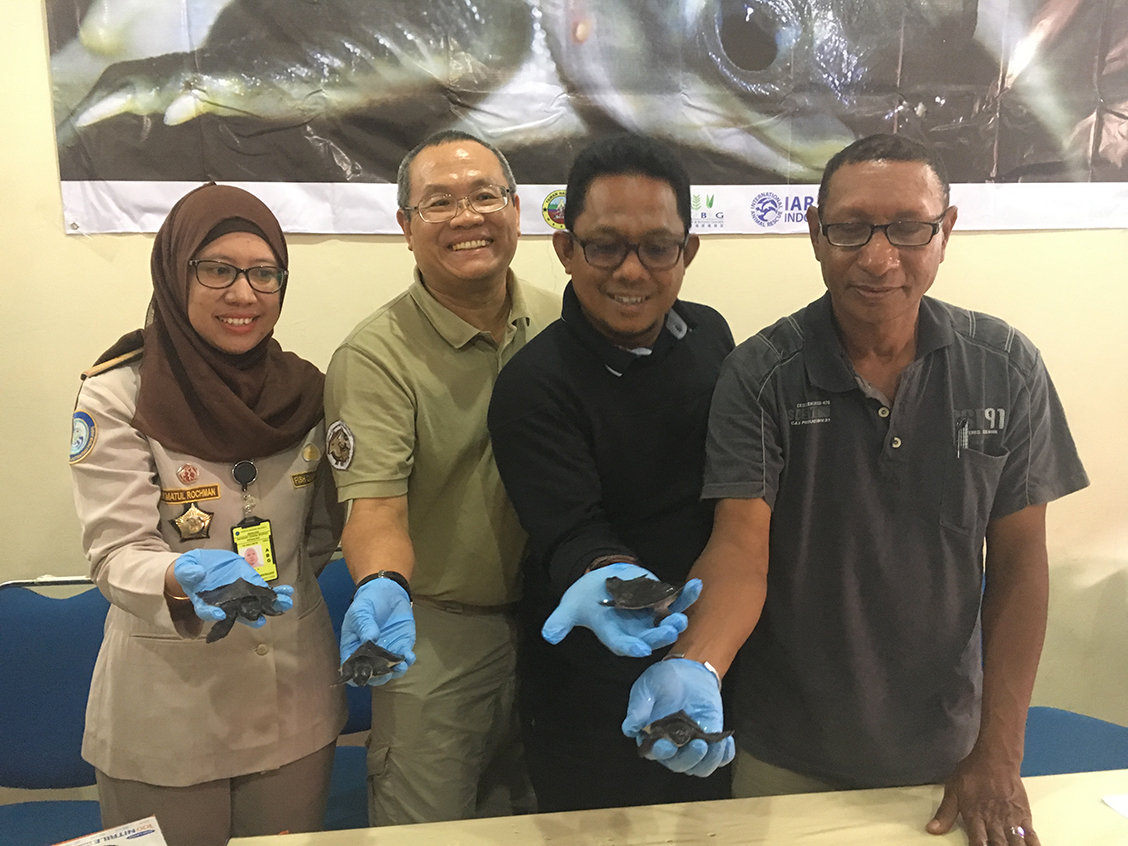
Tan Kit Sun (second left), Senior Conservation Officer of KFBG Fauna Conservation Department, attended the press conference at Soekarno-Hatta Airport.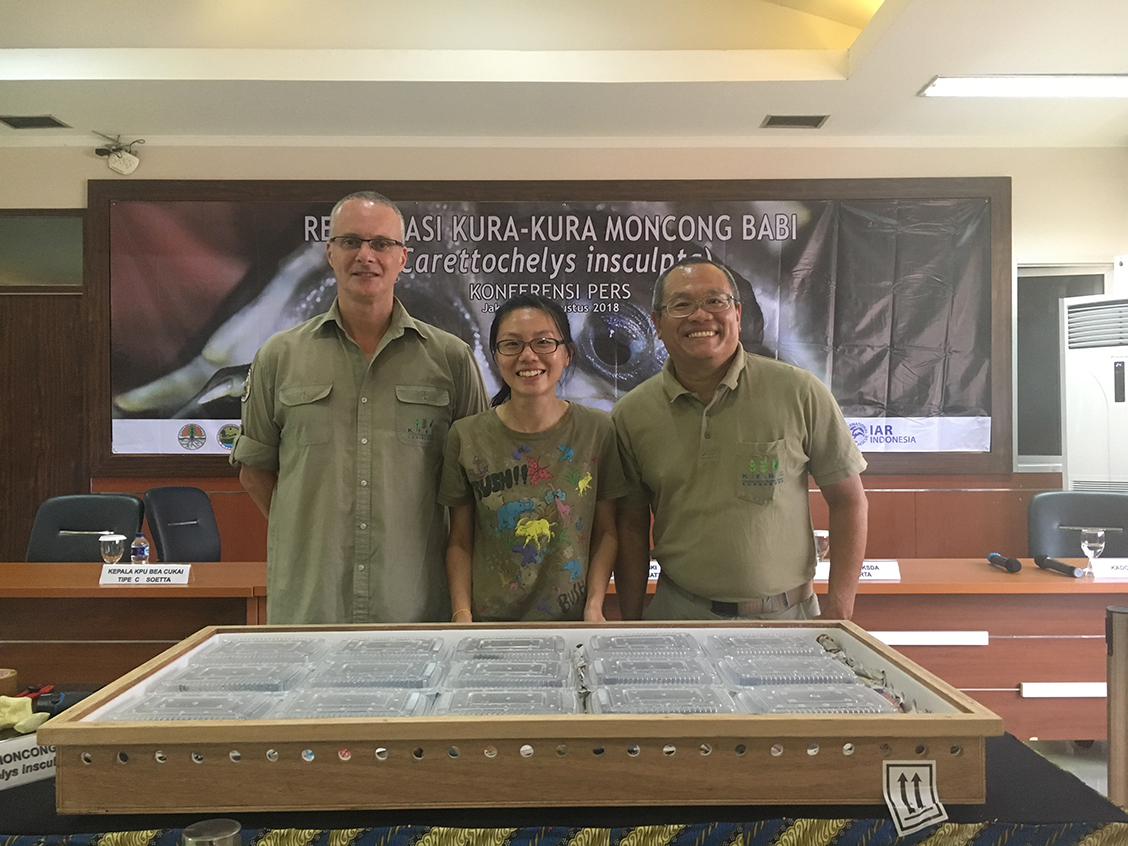
Kadoorie Farm & Botanic Garden staffs, Dr Alex Grioni, Ms. Tamari Yu and Mr. Tan Kit Sun shortly after arrival with the turtles in Jakarta.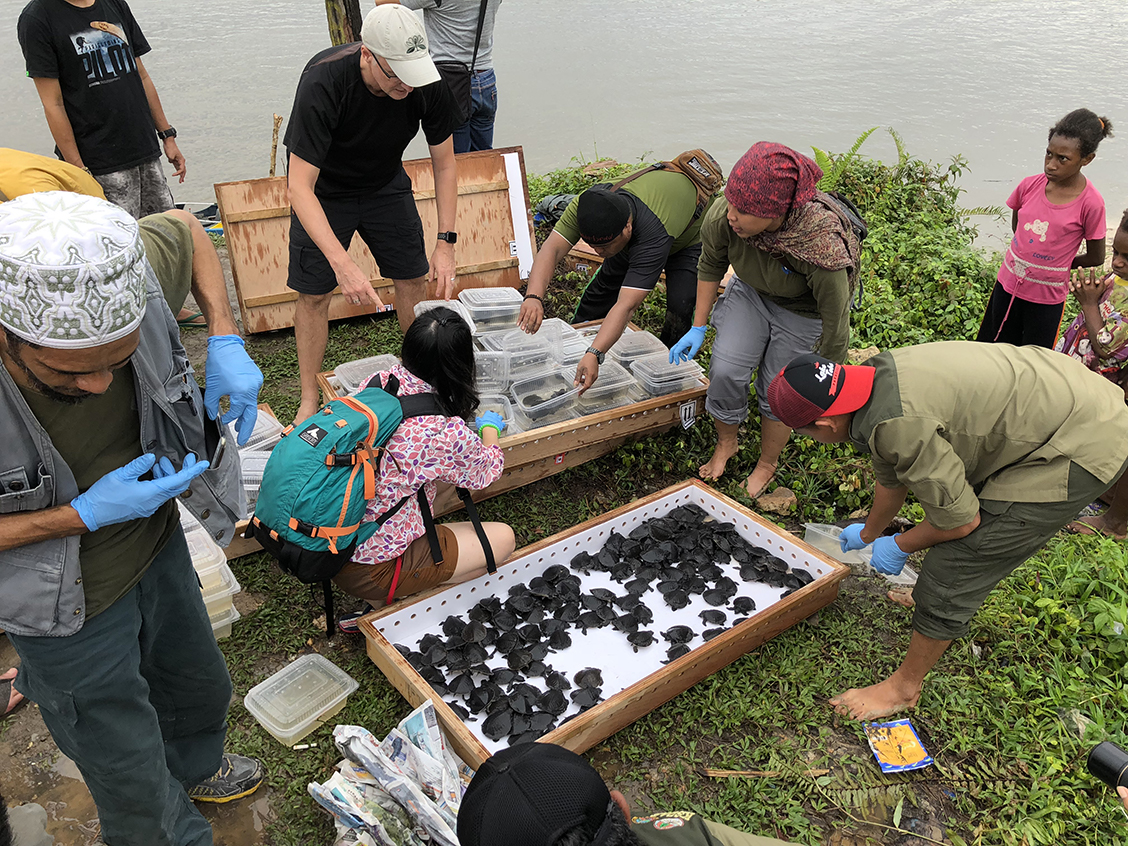
The turtles arrived at the release site safely and were carefully removed from the crates.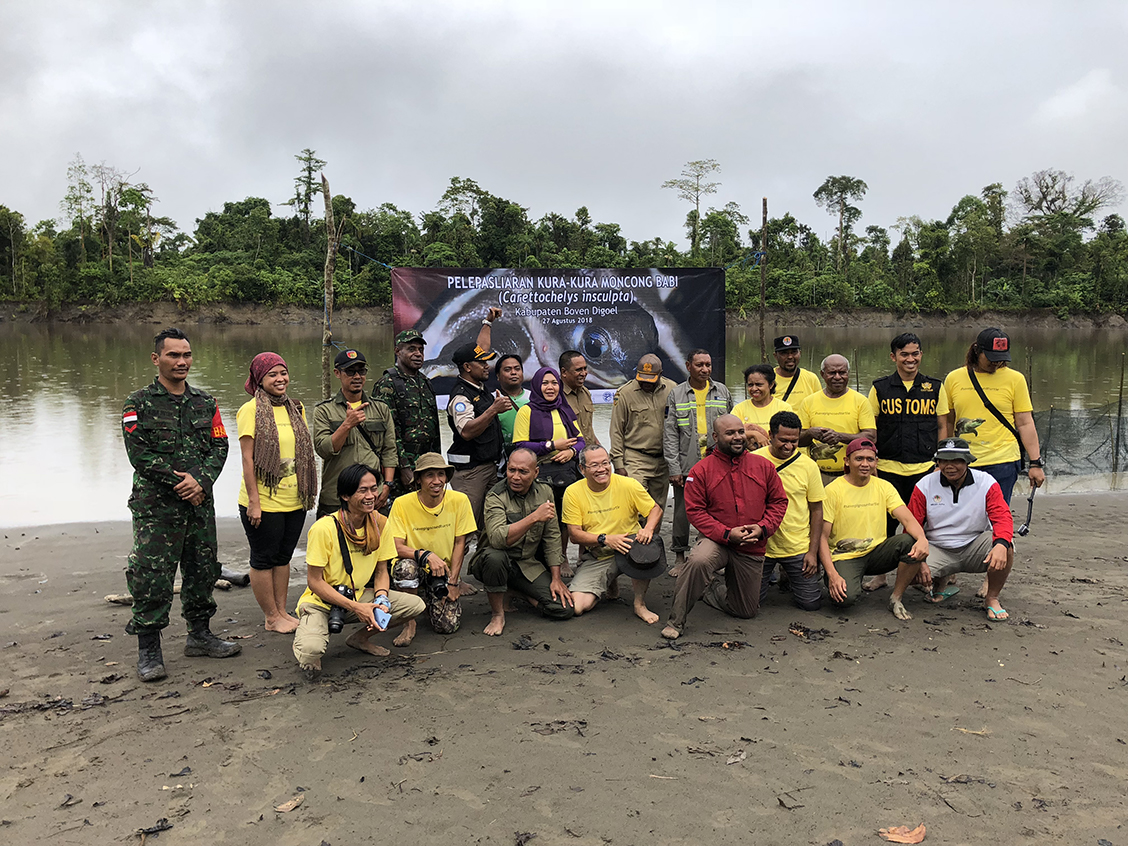
The rehoming exercise was a collaborative effort between Governments and NGOs.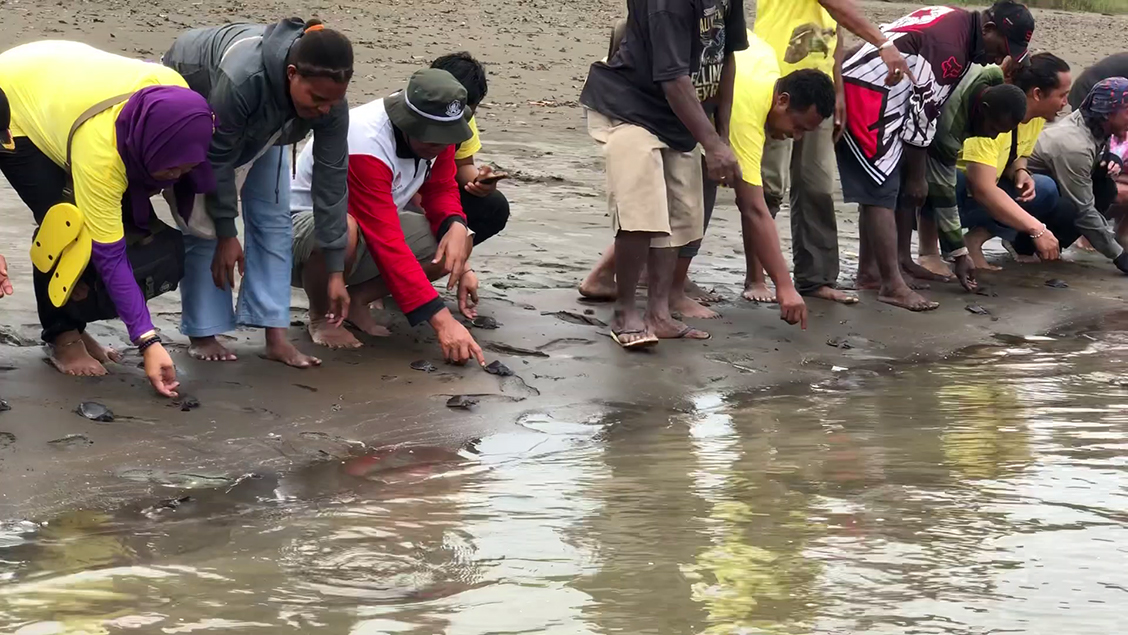
Home Sweet Home – turtles are freed into the Digoel River.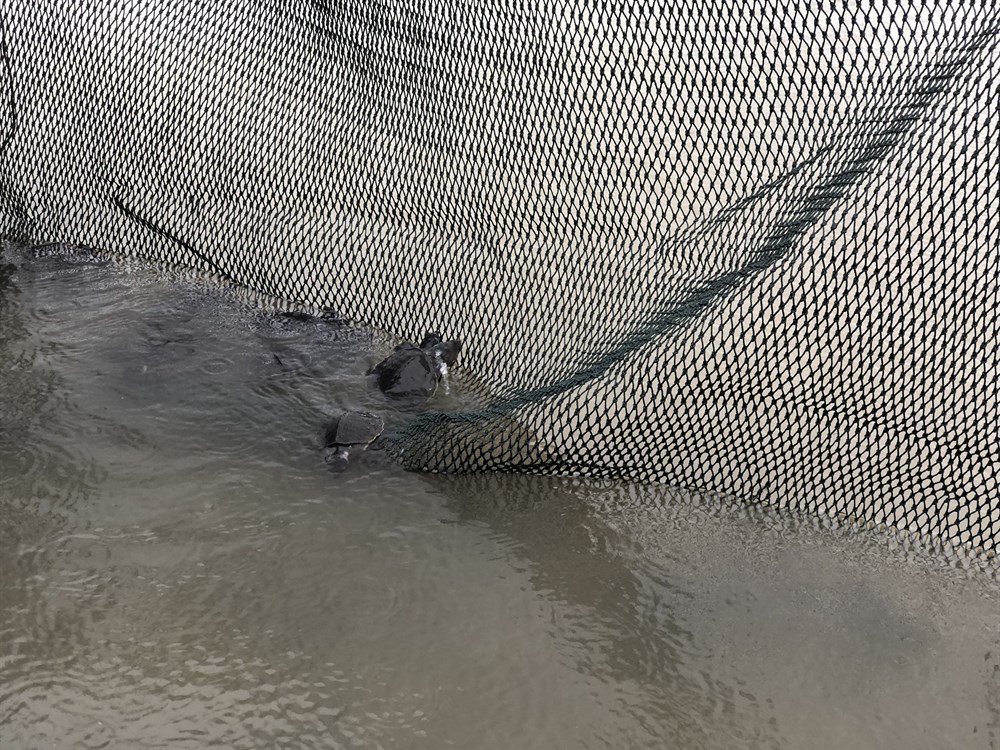
The juvenile turtles were eager to leave the temporary holding nets.


